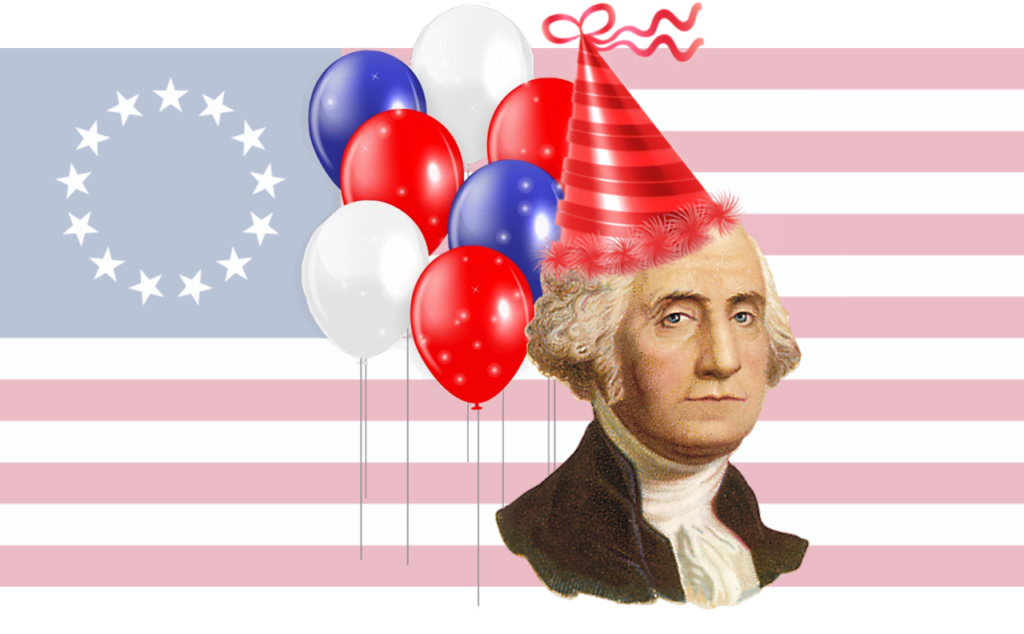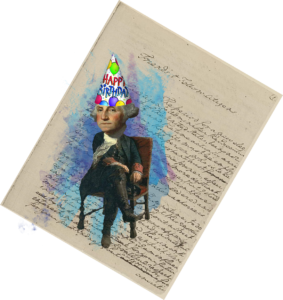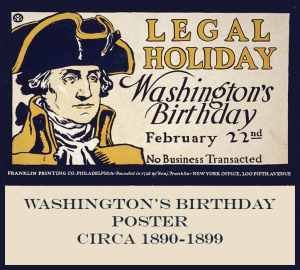Today’s federal holiday is formally named George Washington’s Birthday. Most people, however, know it as Presidents Day. Washington is rightfully honored as the father of our country and as American’s first president. Some historians argue, however, that he was not America’s first president. According to them, that honor belongs either to Peyton Randolph, Samuel Hamilton, or John Hanson. Confused? The answer as to whom should get credit as America’s first president depends on when you think America emerged as a nation rather than as a group of separate colonies. Historian Grant Oster notes, “Whether you debate that America became a country in 1776, when it declared its independence; in 1781, when The Articles of Confederation were adopted; or in 1783, when the Treaty of Paris was signed and Britain acknowledged America as an independent nation, you have to admit that from these time periods to the appointment of George Washington to President of the United States, there was a long stretch of time.”[1] He then asks, “So, who acted as the executive officer while George Washington was engaged in battle with the Redcoats?”
According to Oster, if you accept a date earlier than 1776, Peyton Randolph should probably be considered America’s first president. At that time, the only intercolonial political body was the Continental Congress. Oster explains on 5 September 1774 Peyton Randolph was named the first President of the Continental Congress. His successors included Henry Middleton, John Hancock, Henry Laurens, John Jay, and Samuel Hamilton. When the Articles of Confederation were adopted on 1 March 1781, Hamilton transitioned from President of the Continental Congress to President of the United States in Congress Assembled. Hamilton, unfortunately, fell ill and only served in that capacity until July 1781 when he was replaced by Thomas McKean. McKean served as President of the United States in Congress Assembled until 5 November 1781, when John Hanson was elected as the third President of the United States in Congress Assembled. Nevertheless, because Hanson was the first elected President of the United States in Congress Assembled to serve one full term, some historians give him credit as being America’s first president.
If you are wondering why one of those early “presidents” weren’t given pride of place as America’s first president. The staff at ConstitutionFacts.com explains, “When we think of the President of the United States, many people do not realize that we are actually referring to presidents elected under the U.S. Constitution. Everybody knows that the first president in that sense was George Washington. But, in fact, the Articles of Confederation, the predecessor to the Constitution, also called for a president — albeit one with greatly diminished powers. Eight men were appointed to serve one-year terms as president under the Articles of Confederation. In November 1781, John Hanson became the first President of the United States in Congress Assembled, under the Articles of Confederation.”[2] The seven duly-elected Presidents of the United States in Congress Assembled following Hanson were: Elias Boudinot (Nov 4 1782 – Nov 2 1783), Thomas Mifflin (Nov 3 1783 – Nov 29 1784), Richard Henry Lee (Nov 30 1784 – Nov 22 1785), John Hancock (Nov 23 1785 – Jun 5 1786), Nathaniel Gorham (Jun 6 1786 – Feb 1 1787), Arthur St. Clair (Feb 2 1787 – Jan 21 1788), and Cyrus Griffin (Jan 22 1788 – Apr 30 1789).
Before leaving behind the story of John Hanson, the staff at ConstitutionFacts.com explains that Hanson accomplished an incredible amount during his year-long presidency. They report, “While he served from November 5, 1781, until November 3, 1782, he was able to remove all foreign troops from American lands, as well as their flags. He also introduced the Treasury Department, the first Secretary of War, and the first Foreign Affairs Department. He led the fight to guarantee the statehood of the Western Territories beyond the Appalachian Mountains that had been controlled by some of the original thirteen colonies. What’s probably most interesting is that Hanson is also responsible for establishing Thanksgiving Day as the fourth Thursday in November.” Had the term for President of the United States in Congress Assembled been four years rather than one, Hanson would not have lived to serve a full term. He died on 15 November 1783 at the age of 62. In a 1939 book entitled John Hanson and the Inseparable Union, Jacob A. Nelson wrote:
“Thus was ended the career of one of America’s greatest statesmen. While hitherto practically unknown to our people, and this is true as to nearly all the generations that have lived since his day, his great handiwork, the nation which he helped to establish, remains as a fitting tribute to his memory. It is doubtful if there has ever lived on this side of the Atlantic, a nobler character or shrewder statesman. One would search in vain to find a more powerful personage, or a more aggressive leader, in the annals of American history. And it is extremely doubtful if there has ever lived in an age since the advent of civilization, a man with a keener grasp of, or a deeper insight into, such democratic ideals as are essential to the promotion of personal liberty and the extension of human happiness. … He was firm in his opinion that the people of America were capable of ruling themselves without the aid of a king.”
If you want to get really nitpicky, Hanson and his successors weren’t technically presidents of the country. They were more like today’s President pro tempore of the United States Senate. The ConstitutionFacts.com staff explains, “Under the Articles of Confederation, the United States had no executive branch. The President of Congress was a ceremonial position within the Confederation Congress. Although the office required Hanson to deal with correspondence and sign official documents, it wasn’t the sort of work that any President of the United States under the Constitution would have done.” So, rest easy President Washington; your place in history is secure. Nevertheless, if you take the broader view, and celebrate this holiday as Presidents Day, you might want to expand your celebration to include all the “presidents” who preceded George Washington as well.
Footnotes
[1] Grant Oster, “Presidents Before Washington,” Hankering for History, 2013.
[2] Staff, “The John Hanson Story,” ConstitutionFacts.com.





